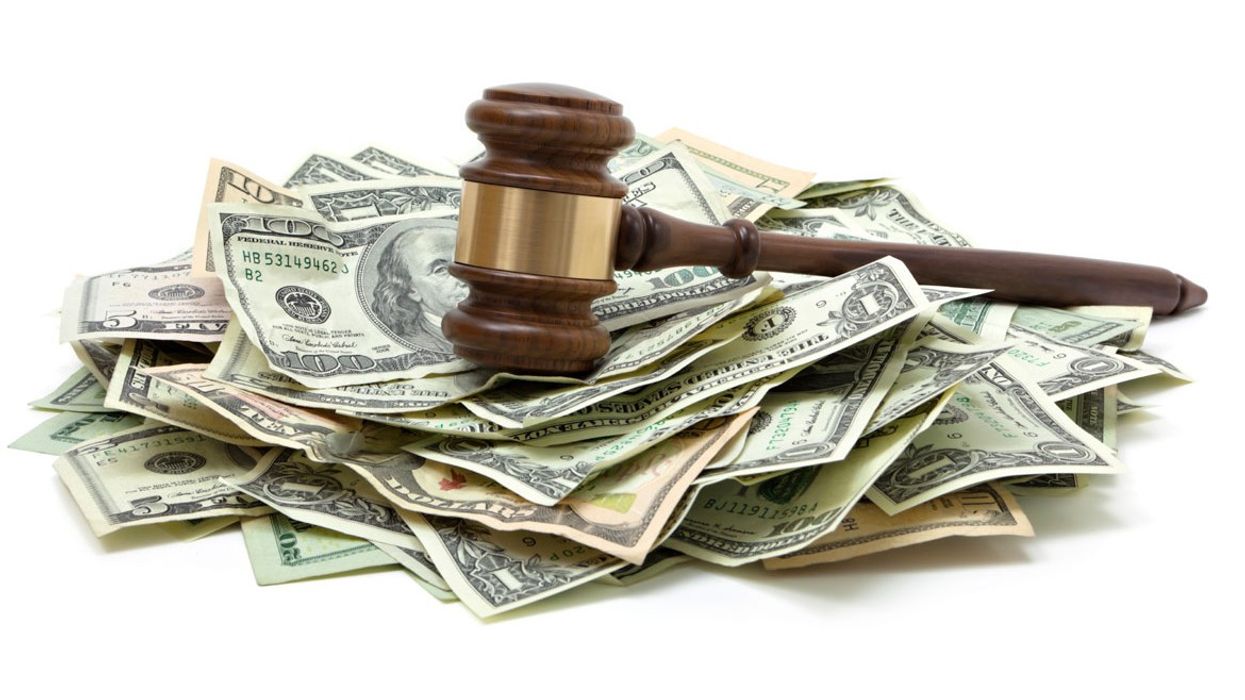How to Manage Your Film's Digital Rights
It’s what no filmmaker wants to think about yet every filmmaker should.

Many new filmmakers wonder how they can afford to pay a lawyer when they can’t even afford to pay themselves. However, shirking this step could cost you much more down the line. In a panel that took place last month as part of DOC NYC Pro's Distribution Boot Camp, featuring moderator Andrew Tunnard (Entertainment Associate at Cowan, DeBaets, Abrahams & Sheppard) and panelists Nancy E. Wolff and Lindsay Bowen (Partners at Cowan, DeBaets, Abrahams & Sheppard), professional expertise was shared on several legal topics of interest to independent filmmakers.
To put it simply, “if you're ever given a contract, it is really helpful to have a lawyer to look at any contract,” says Wolff, "as there are terms in there that could impact the future of your work.”
One major issue to be aware of is that even a seemingly casual email exchange can be legally binding. “There are so many times that clients don't know that they've already made the deals before they get the contract,” said Wolff. “Once you're on email, it's a written agreement,” affirmed Bowen, " and depending on the back and forth, if it ever got to court, a judge might call it a contract. And they might look at industry custom. In the film industry, deals are often made, negotiated and done on email.”
The moral of this story? “Be very careful communicating with people via email,” warns Bowen. When in doubt, it’s important to be very clear that you have not yet agreed to any deal and will not agree before passing a written document to your attorney and subsequently signing the paper.
"Fair Use is not only a defense but a defense you have to prove."—Lindsay Bowen (Partners at Cowan, DeBaets, Abrahams & Sheppard)
A large part of the work done for filmmakers by attorneys at Cowan, DeBaets, Abrahams & Sheppard is to make sure that they have the proper rights needs to legally distribute their films. This means that a lawyer must watch the film and check that the filmmaker has secured to rights to use every clip, song, image, and character, or that they could argue Fair Use for that element.
Filmmakers are not advised to make their own decisions on what can be considered Fair Use, as there is a complex legal process that makes those determinations and identifies a number of gray areas. “The judges say that this is one of the most difficult to understand,” explained Wolff, "that it's always been an exception to copyright because the use of the material furthers copyright.”
Bowen added, “Fair Use is not only a defense but a defense you have to prove...You'll be in a lawsuit for a year. It can be expensive to win with Fair Use.” In short, it’s much better to avoid triggering a Fair Use lawsuit at all costs. If such a lawsuit does occur, it may be covered by E&O (errors and omissions) insurance.
One helpful tip for making this process seamless is for the filmmaker to keep “a very detailed clip log that says where each shot comes from so they can be cleared,” suggests Wolff. Another essential step is to purchase E&O insurance, a professional liability insurance that protects a filmmaker and their production company against claims made by negligent actions.
One of the most difficult areas of media to clear, according to Bowen and Wolff, is music.
An area of usage where filmmakers do not need to worry about securing rights is when works are in the Public Domain, which is generally defined as the life of the author, plus an additional 70 years. Some resources where such works are available are at the Smithsonian Institution Public Domain Images, New York Times Public Domain Archives, Project Gutenberg (a collection of public domain electronic books), and Prelinger Archives (a large collection of advertising, educational, industrial, and amateur films).
One of the most difficult areas of media to clear, according to Bowen and Wolff, is music. This is because the law requires you to get the permission of the songwriter/publisher, the artist, and their music label. For example, say you wanted to use a Led Zepplin song. First of all, Wolff says, a “small” documentary film project is not even likely to hear back. But if you do clear that first hurdle, “you're talking to Warner Chappell and you're getting a synch license. This means that you can sync their audio with your [film]. You then you go to the label (Warner Bros. Records) and they will ask you different questions. You will also need to get a master of use license.”
If this sounds complicated and laborious, it is. It's also prohibitively expensive for most indie filmmakers: a sticker price of tens of thousands of dollars is common for a well-known song. Wolff’s suggestion is that “unless something is really integral, get a composer and buy out the rights to the music that way.”
For filmmakers on a tight budget, there are free or low-cost legal services available, such as Volunteer Lawyers for the Arts and The Entertainment Law Clinic at Chapman Law School.












